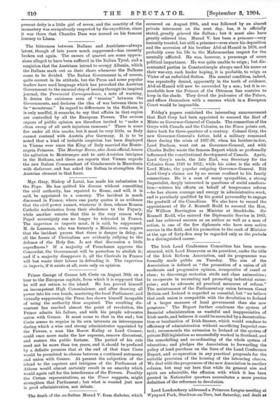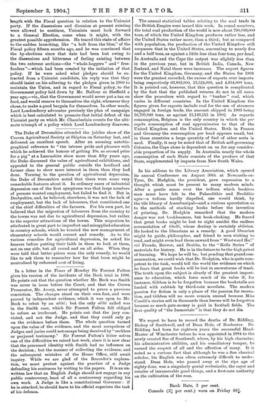length with the Fiscal question in relation to the Unionist
party. If the dissensions and disunion at present existing were allowed to continue, Unionists must look forward to a General Election, come when it might, with the greatest possible apprehension. He traced this state of affairs to the sudden launching, like "a bolt from the blue," of the Fiscal policy fifteen months ago, and he was convinced that the by-elections since that date had been lost owing to the dissensions and bitterness of feeling existing between the two extreme sections—the " whole-hoggers " and" free- feeders "—which had been created by the initiation of that policy. If he were asked what pledges should be ex- tracted from a Unionist candidate, his reply was that they should insist on his adhering to the pledges given in 1900 to maintain the Union, and in regard to Fiscal policy, to the Government policy laid down by Mr. Balfour at Sheffield a year ago,—viz., that the Government would never put a tax on food, and would reserve to themselves the right, whenever they chose, to make a good bargain for themselves. In other words, Lord Londonderry advocates precisely the plan of campaign which is best calculated to promote that initial defeat of the Unionist party on which Mr. Chamberlain counts for the ulti- mate triumph of a policy which Lord Londonderry disavows.







































 Previous page
Previous page